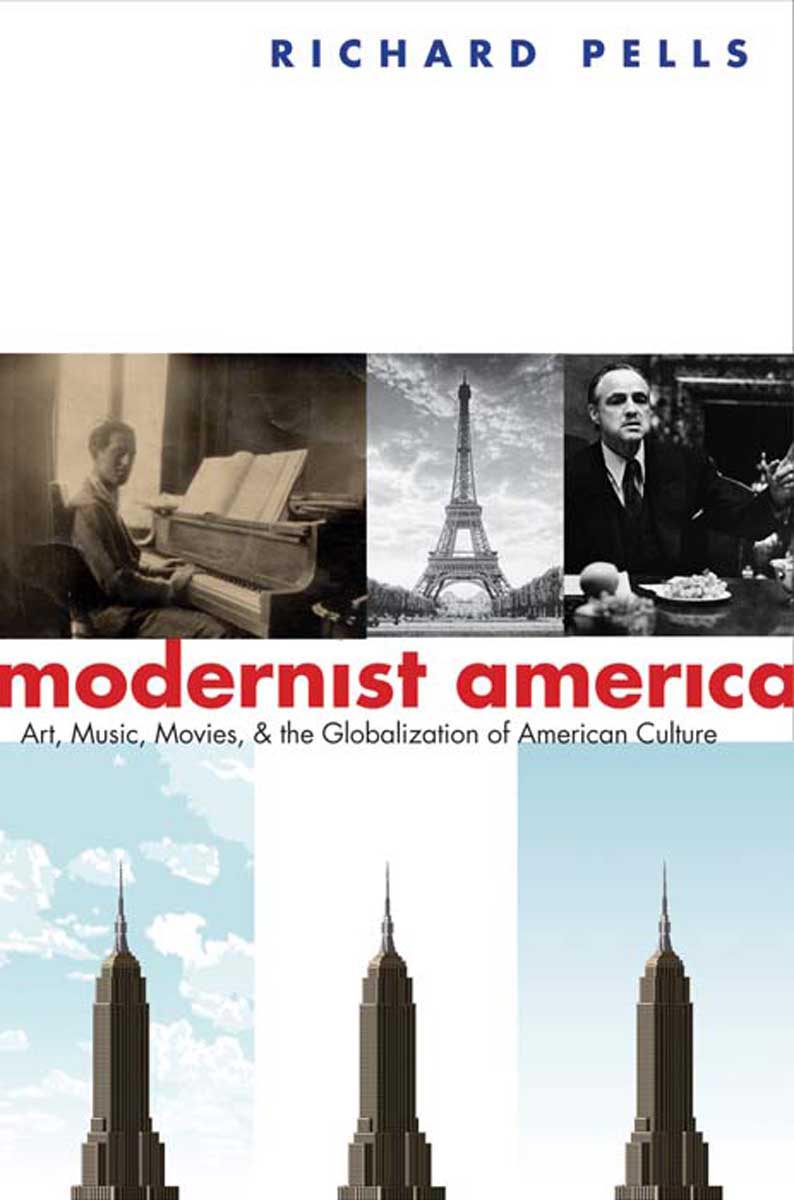PB:
£40.00
QTY:
Modernist America
Art, Music, Movies, and the Globalization of American Culture
America's global cultural impact is largely seen as one-sided, with critics claiming that it has undermined other countries' languages and traditions. But contrary to popular belief, the cultural relationship between the United States and the world has been reciprocal, says Richard Pells. The United States not only plays a large role in shaping international entertainment and tastes, it is also a consumer of foreign intellectual and artistic influences. Pells reveals how the American artists, novelists, composers, jazz musicians, and filmmakers who were part of the Modernist movement were greatly influenced by outside ideas and techniques. People across the globe found familiarities in American entertainment, resulting in a universal culture that has dominated the twentieth and twenty-first centuries and fulfilled the aim of the Modernist movement – to make the modern world seem more intelligible. "Modernist American" brilliantly explains why George Gershwin's music, Cole Porter's lyrics, Jackson Pollock's paintings, Bob Fosse's choreography, Marlon Brando's acting, and Orson Welles' storytelling were so influential, and why these and other artists and entertainers simultaneously represent both an American and a modern global culture.
About the author
Richard Pells is a professor of history at the University of Texas at Austin. He is also the author of "Not Like Us: How Europeans Have Loved, Hated, and Transformed American Culture since World War II", "The Liberal Mind in a Conservative Age: American Intellectuals in the 1940s and 1950s", and "Radical Visions and American Dreams: Culture and Social Thought in the Depression Years".
Reviews
"Pells makes for a fine guide to the 20th century. His book is worth reading for the section on Hemingway alone – and for the blinding insight that the tics and twitches of Travis Bickle and Clyde Barrow and the other crazies of the American new wave owe a lot to Vivien Leigh's Blanche DuBois" – Christopher Bray, The Observer
"At times the account is revelatory, as it is poignant: the legions of fans who greeted the dazed band leader Benny Goodman on his arrival in Los Angeles in 1935, where, unbeknown to Goodman, due to the three hour time difference, his moderately successful late night radio slot in New York had become a weekly prime-time smash. The book is full of such gems" – Nick Liptrot, History Today
"At times the account is revelatory, as it is poignant: the legions of fans who greeted the dazed band leader Benny Goodman on his arrival in Los Angeles in 1935, where, unbeknown to Goodman, due to the three hour time difference, his moderately successful late night radio slot in New York had become a weekly prime-time smash. The book is full of such gems" – Nick Liptrot, History Today


